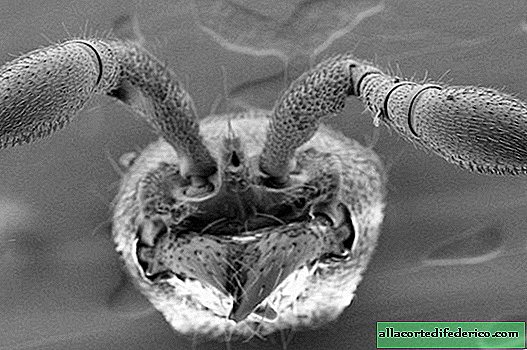What will happen if the “social gene” is removed from the ants
Ants are unique insects that build very complex and effective social systems. In their anthills there are working ants who are responsible for food, there are protective soldiers, builders and so on. For such a community to work like a clock (which usually happens in anthills), coordination and constant communication between ants is required.
Speak through the smell
The ant tongue is produced through pheromones, and the way the ants interact is fundamentally different from how other organisms interact. The most important class of pheromones in the communication of ants are hydrocarbons, with the help of which insects feel belonging to the species, colony and caste. These pheromone signals are detected by porous sensory hairs on ant antennas that contain special receptors - proteins that recognize specific chemicals and transmit a signal to the brain.

A group of receptor genes called OP-9-exon-alpha is responsible for this information transfer channel. Interestingly, if the ancestors of the ants had up to three copies of this gene, then modern representatives of the species have about 180 copies, and this duplication occurred in a very short period. Apparently, this change has largely influenced the development of social ties of ants.
Strangers among their
But scientists decided not to dwell on the theory and test in practice how the system works. To do this, they destroyed the gene necessary for the functioning of all receptors. The aim of the experiment was to launch ants without the ability to communicate through receptors in the anthill and to ensure that they remained alive (scientists had to make an effort so that the working ants did not feel something was wrong and did not kill them in childhood).

When the larvae of the mutant ants grew, they immediately began to show abnormalities in behavior. Ants usually travel in one line, recognizing the pheromones left by the ants in front. Researchers have found that mutant ants cannot get in line. That is, non-functioning receptors are crucial for the detection of pheromones - the main method of ant communication.
But the most amazing thing is that the lack of receptors has changed the shape of the brain of ants. This was not the case, for example, in fruit flies, with which scientists conducted similar genetic experiments. This suggests that for ants the sense of smell is more important (and better developed) than that of other insects.

















